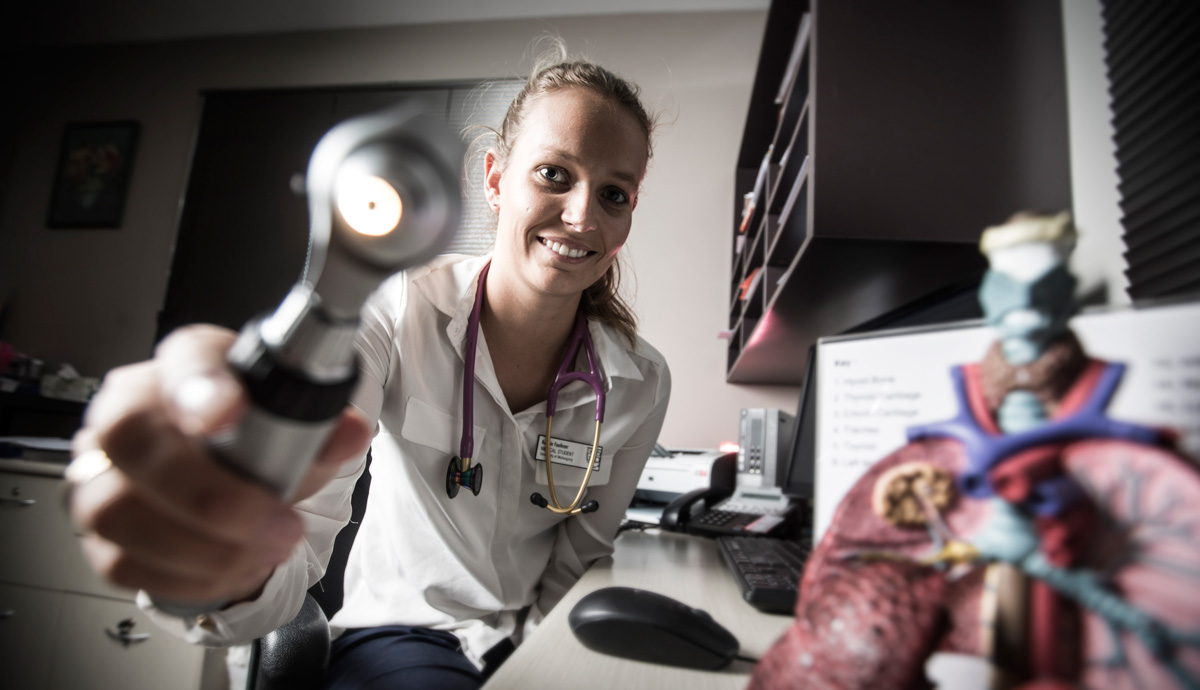May 4, 2015
Country spirit shines through for young medical students
Students embark on life-changing experiences in the bush thanks to a unique rural placement program.
Medical student Kaitlin Faulkner always dreamed of becoming a doctor. But it wasn’t until the eve of the Beijing Olympics when she had to choose between a gruelling rehabilitation program following a shoulder reconstruction or a career in medicine that she made her decision.
“I still wonder what could have been,” the former competitive swimmer said. “But we all have to make hard life decisions and sacrifices and I don’t regret mine for a minute.”
The 24-year-old, originally from Toowoomba in Queensland, is now in her final year of double degree program Bachelor of Medicine/Bachelor of Surgery and has been completing her rural clinical placement at Moss Street Medical Practice in Nowra for the past 12 months.
As part of her placement, Kaitlin has been conducting her own original research project to identify how parents in regional Australia understand childhood development. Kaitlin’s research found that parents had a significantly better understanding of gross and fine motor milestones – when children should walk, run, jump – than they did with the similarly important language and social milestones.
“Overall, I found that parents had a relativity poor understanding of key milestones for childhood development and there was no correlation between parents’ perceived knowledge and their actual knowledge.
“Interestingly, it didn’t matter if parents already had a few children or whether they were expecting their first child, their knowledge level on average was similar. This makes it really challenging for doctors to diagnose developmental issues as they rely on information from parents.”
Associate Professor David Garne, who oversees clinical placements, said UOW has the only medical school in Australia that provides opportunities for all its students to undertake such a long-term placement in a rural or regional setting.
“The year-long clinical placement program has been designed with a strong focus on preparing doctors to practise in regional, rural and remote areas,” he said. “It also gives students the opportunity to become immersed in a medical environment, allowing for continuity of patient contact, which is an ideal environment for learning about the management of chronic disease.”
During her clinical placement, Kaitlin said she has gained a lot of confidence in her skills and knowledge as a medical professional but has also fallen for life outside the big city.
“The thing I have loved about regional medicine is the patients – they are down to earth, more than willing to facilitate my learning, and forthcoming with compliments and thanks for the part that I have played in their health care. It has been an extremely rewarding experience.”
When Kaitlin graduates at the end of this year she will be tossing up between pursing paediatric medicine and rural general practice.
The Graduate School of Medicine was established with a primary aim of helping to address the critical shortage of medical practitioners outside the major cities. UOW operates 11 regional and rural hubs – from Byron Bay and Broken Hill to Ulladulla – for its medical students, whose longitudinal clinical placements start mid-way through their 3rd year of training and continues until mid-way through their fourth year.
